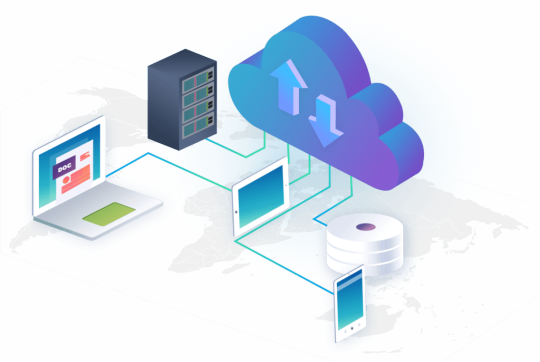Don't wanna be here? Send us removal request.
Text
Ensuring Data Protection and Business Continuity

In today's digital era, managing and securing data backups is essential for organizations of all sizes. Cloud backups have emerged as a reliable solution for storing and protecting critical data. However, effective management of cloud backups is equally important to ensure data availability, integrity, and efficient recovery. In this blog post, we will explore some best practices for managing cloud backups, helping you safeguard your data and maintain business continuity.
Define a Backup Strategy: Start by establishing a comprehensive backup strategy that aligns with your organization's needs. Determine the frequency of backups, retention periods, and recovery objectives. Consider the criticality of data and prioritize accordingly. A well-defined backup strategy serves as a foundation for efficient cloud backup management.
Choose the Right Cloud Backup Provider: Selecting a reputable and reliable cloud backup provider is crucial. Evaluate factors such as data security measures, encryption protocols, data redundancy, service-level agreements (SLAs), and scalability. Look for providers with a proven track record in the industry and positive customer reviews.
Conduct Regular Data Audits: Perform periodic audits of your data backups to ensure that all critical data is being appropriately protected. Regularly review backup logs, data consistency, and any error or warning messages. These audits help identify any gaps in backup processes and allow for timely adjustments.
Implement Data Encryption: Data encryption is a fundamental aspect of cloud backup security. Ensure that your backup solution supports encryption both in transit and at rest. Encrypt sensitive data before it leaves your organization's environment and select encryption algorithms and key management practices that meet your security requirements.
Test Backup Restorations: Don't wait for a disaster to strike before testing your backup restoration process. Periodically perform restoration tests to validate the integrity and recoverability of your cloud backups. This practice helps identify any issues or potential limitations in the recovery process, enabling you to fine-tune your backup strategy.
Use Incremental and Differential Backups: To optimize storage utilization and reduce backup duration, leverage incremental and differential backups. Instead of backing up entire datasets every time, these methods only capture and store changes since the last backup. This approach minimizes backup windows and reduces bandwidth consumption.
Implement a Backup Schedule: Establish a consistent backup schedule that ensures regular and timely backups. Automate the backup process whenever possible to eliminate the risk of human error and ensure data is protected according to the defined strategy. Regularly review and update the schedule to accommodate changing business needs.
Monitor Backup Health and Performance: Continuously monitor the health and performance of your cloud backups. Utilize monitoring tools to track backup success rates, storage utilization, and overall system performance. Proactively address any anomalies or failures to maintain data availability and reliability.
Secure Access and Authentication: Implement robust access controls and authentication mechanisms to prevent unauthorized access to your cloud backups. Utilize strong passwords, multi-factor authentication (MFA), and role-based access controls (RBAC) to limit access to authorized personnel only. Regularly review and update user permissions.
Maintain Off-Site Backups: Diversify your backup strategy by maintaining off-site backups. Storing copies of critical data in geographically separate locations provides an additional layer of protection against natural disasters, regional outages, or other unforeseen events. Consider utilizing a different cloud provider or physical storage options for off-site backups.
Conclusion: Effectively managing cloud backups is paramount for ensuring data protection, business continuity, and peace of mind. By following the best practices outlined in this blog post, you can establish a robust cloud backup management framework. Remember to regularly assess and update your backup strategy to align with evolving business needs and advancements in cloud backup technologies. With proper management, your organization can safeguard its data assets and recover swiftly from any potential data loss scenarios.
#cloudbackup#backup#cloudstorage#cloud#databackup#datastorage#computersolutions#dataprotection#serversolutions#networkcabling#data#technology#microsoft#cloudcomputing#datasecurity#zerodowntime#cloudservices#the#serverupgrades#privatecloud#itservices#serverroom#deployments#datacenter#manageditservices#migrations#storage#backupdata#solutions#servermaintenance
0 notes